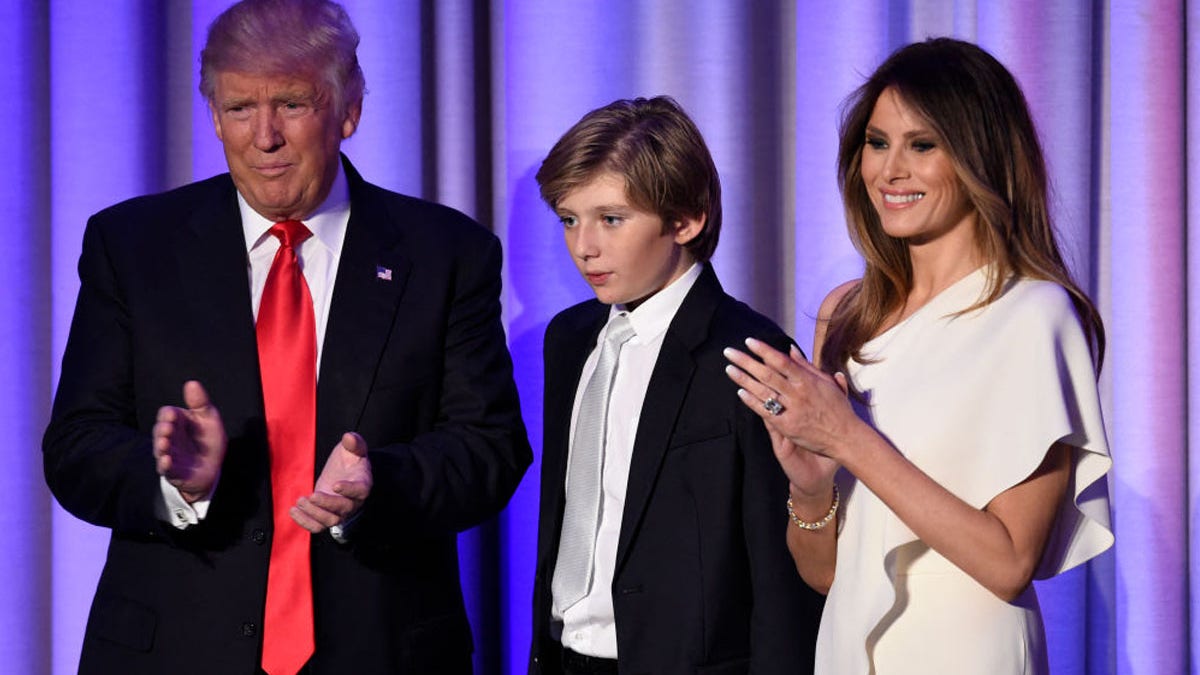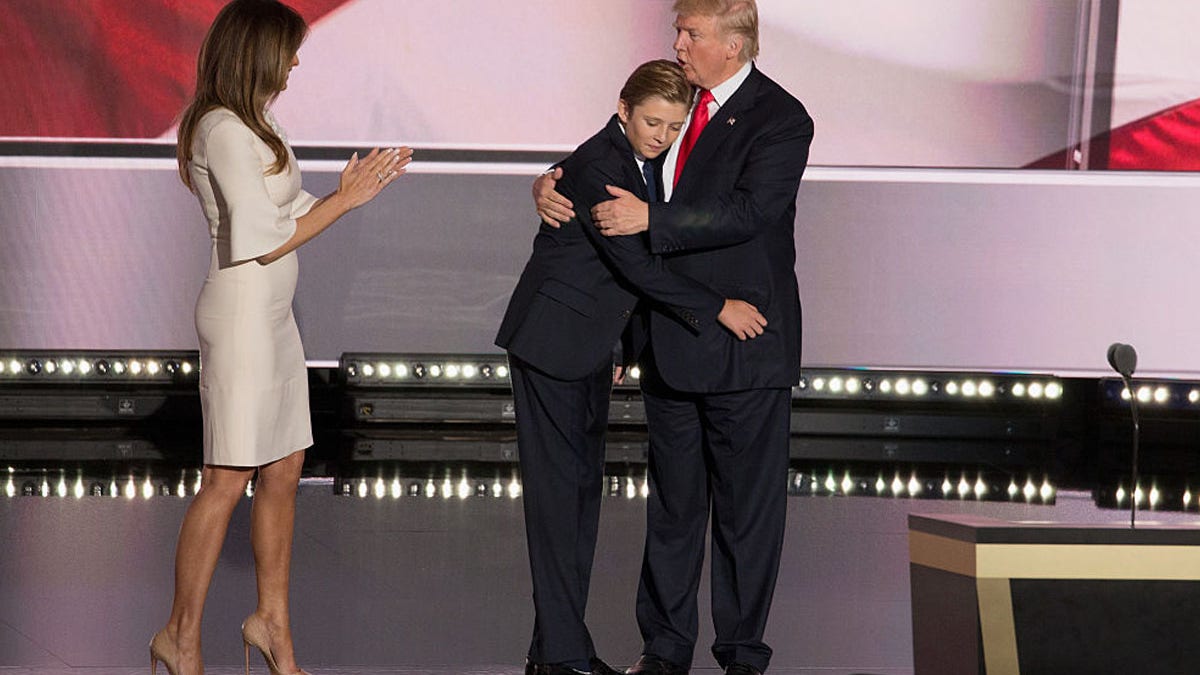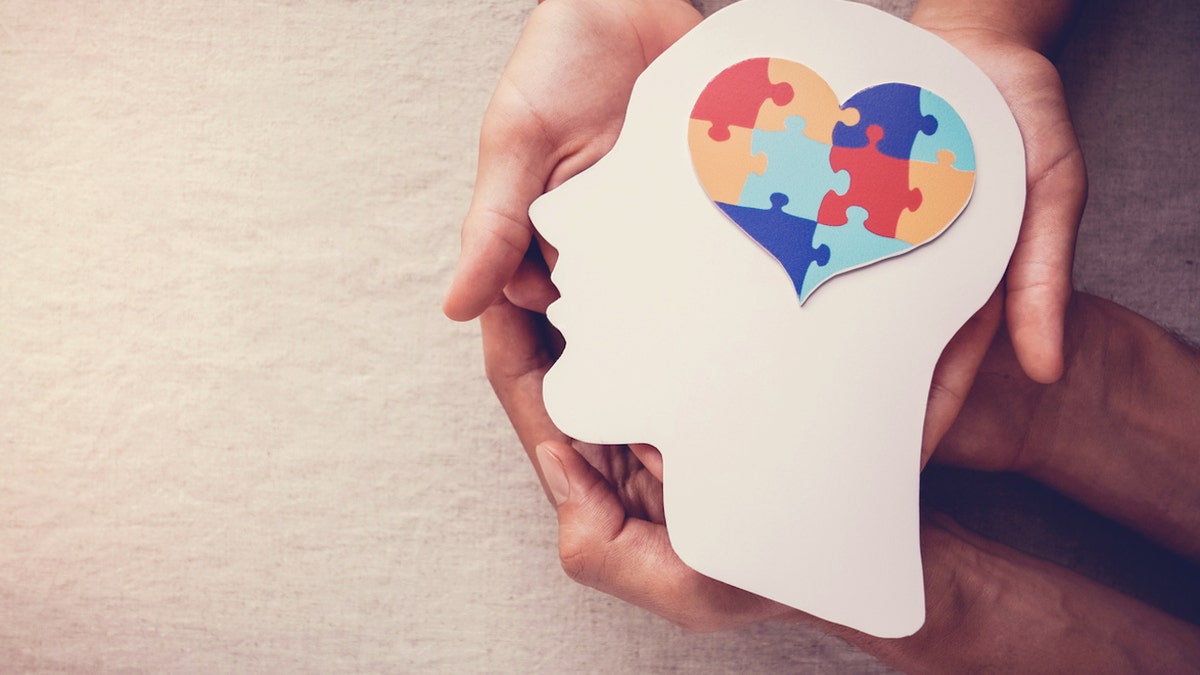Melania Trump is speaking out about previous rumors that her son, Barron Trump, has autism.
In her memoir, “Melania,” which was published on Oct. 8, the former first lady writes about her son being bullied after comedian Rosie O’Donnell tweeted about him appearing to have autism.
In the tweet, which was later deleted, O’Donnell wrote, “Barron Trump autistic? If so, what an amazing opportunity to bring attention to the AUTISM epidemic.”
UNIQUE THERAPY HELPS SOME YOUNG PEOPLE WITH AUTISM INTERACT BETTER WITH OTHERS
O’Donnell also shared a 2016 video of Barron Trump at the Republican National Convention.
In the viral video, which has also since been deleted, the creator had added captions implying that the boy, who was 10 at the time, had autism spectrum disorder (ASD).
“I was appalled by such cruelty,” Melania Trump writes in the book. “It was clear to me that she was not interested in raising awareness about autism. I felt that she was attacking my son because she didn’t like my husband.”
WORLD AUTISM AWARENESS DAY: HOW YOU CAN SHOW YOUR SUPPORT IN 2024
“There is nothing shameful about autism (though O’Donnell’s tweet implied that there was), but Barron is not autistic,” she added.
“Barron’s experience of being bullied both online and in real life following the incident is a clear indication of the irreparable damage caused.”
The former first lady also described the experience as “devastating.”
“It felt like my heart was breaking into pieces.”

The memoir, “Melania,” is published by Skyhorse Publishing and distributed by Simon & Schuster.
Dr. Agnesa Papazyan, aka Dr. Aggie, a clinical psychologist in Los Angeles specializing in autism and neurodiversity, spoke with Fox News Digital about the potential harms of someone publicly suggesting that someone has autism.
“Speculating publicly about diagnoses such as ASD also perpetuates harmful stereotypes.”
“Publicly speculating about whether someone has autism based solely on how they act, talk or behave can have negative implications — not only on the individual, but also the broader autism community,” she said.
“It makes the individual feel judged, misunderstood, excluded and stigmatized against.”

Even when the speculation is well-intentioned, speculating can frame the person’s behaviors or ways of communicating as abnormal or “weird,” or as something that needs a label, Dr. Aggie cautioned.
“Speculating publicly about diagnoses such as ASD also perpetuates harmful stereotypes.”
‘OUTGROWING’ AUTISM? FOR SOME KIDS, THE DISORDER SEEMS TO DISAPPEAR BY AGE 6, ‘ENCOURAGING’ STUDY FINDS
Given the complexity of the autism spectrum, Dr. Aggie emphasized that diagnoses should only be made by trained professionals — “not through social media, by a friend or by strangers on the internet.”
“Making assumptions about others based on surface-level observations can lead to misdiagnosis, which not only impacts the person in question, but can also add to misconceptions about autism itself,” she noted.

“This can also lead to unfair treatment of the individual and create unnecessary barriers or judgments in their personal and professional life.”
The doctor also emphasized that autism symptoms vary widely from person to person.
LOS ANGELES MOM SAYS KIDS WITH AUTISM DON’T NEED ‘FIXING,’ URGES GREATER UNDERSTANDING AMID SPIKE IN CASES
“The spectrum nature of autism means that some individuals may be highly verbal and have exceptional cognitive abilities, while others may have significant communication or sensory challenges,” she said.
“This variation is especially pronounced among children, as developmental milestones can differ widely.”

Nechama Sorscher, PhD, a clinical psychologist in New York City, agreed that these types of claims can be harmful.
“Speculating that someone has autism is similar to insinuating that someone has physical or mental health challenges without clear evidence,” she said.
“Simply put, it’s reckless.”
Nearly one in every four students reports being bullied, according to Sorscher.

“Being a kid is already difficult enough, but for Barron, he is in the national spotlight and subjected to constant scrutiny,” she said.
CLICK HERE TO SIGN UP FOR OUR HEALTH NEWSLETTER
“A rumor like having autism could certainly have created a very difficult environment for him.”
More than 60% of children and young adults with autism experience bullying, Sorscher pointed out.
For more Health articles, visit www.foxnews.com/health
“Whether or not you actually have autism, this type of bullying behavior could lead to negative mood and self-image, changes in sleeping patterns, a decline in school performance and so much more.”
Fox News Digital reached out to Melania Trump’s and O’Donnell’s representatives requesting comment.
Read the full article here











